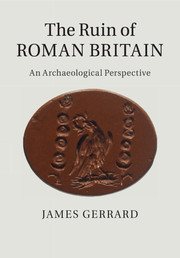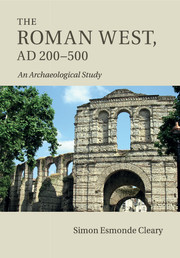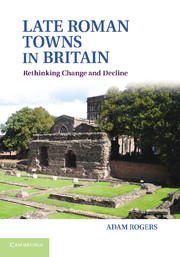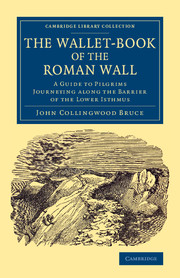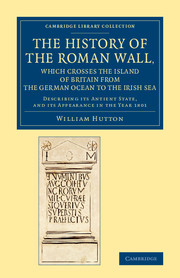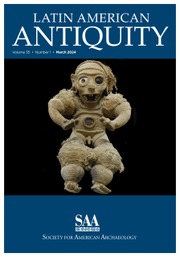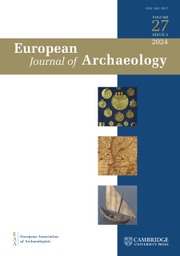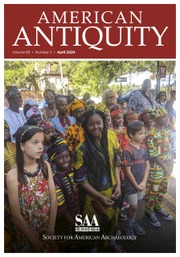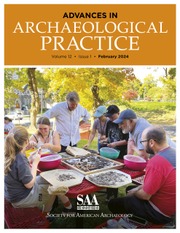The Ruin of Roman Britain
An Archaeological Perspective
£26.99
- Author: James Gerrard, University of Newcastle upon Tyne
- Date Published: September 2016
- availability: Available
- format: Paperback
- isbn: 9781316625682
£
26.99
Paperback
Other available formats:
Hardback, eBook
Looking for an inspection copy?
This title is not currently available on inspection
-
How did Roman Britain end? This new study draws on fresh archaeological discoveries to argue that the end of Roman Britain was not the product of either a violent cataclysm or an economic collapse. Instead, the structure of late antique society, based on the civilian ideology of paideia, was forced to change by the disappearance of the Roman state. By the fifth century elite power had shifted to the warband and the edges of their swords. In this book Dr Gerrard describes and explains that process of transformation and explores the role of the 'Anglo-Saxons' in this time of change. This profound ideological shift returned Britain to a series of 'small worlds', the existence of which had been hidden by the globalizing structures of Roman imperialism. Highly illustrated, the book includes two appendices, which detail Roman cemetery sites and weapon trauma, and pottery assemblages from the period.
Read more- Provides a new interpretation of the end of Roman Britain based on the articulation of power, rather than a historical metanarrative
- Explores late Roman economics as part of an agrarian and tributary society, countering the overemphasis on market economics
- Shows the fifth century to be worthy of study in its own right, presenting the period as a time of change rather than as an adjunct to the end of Roman Britain or the start of Anglo-Saxon England
Customer reviews
Not yet reviewed
Be the first to review
Review was not posted due to profanity
×Product details
- Date Published: September 2016
- format: Paperback
- isbn: 9781316625682
- length: 366 pages
- dimensions: 245 x 170 x 20 mm
- weight: 0.64kg
- contains: 113 b/w illus.
- availability: Available
Table of Contents
1. Introduction
2. Violence and warfare
3. Economic collapse
4. Elite display in the fourth century
5. Elite display in the fifth and sixth centuries
6. Civitates, kingdoms, estates and regions
7. The ruin of Roman Britain
8. Final thoughts
Appendix A. Cemetery sites and weapon trauma
Appendix B. Pottery assemblages.
Sorry, this resource is locked
Please register or sign in to request access. If you are having problems accessing these resources please email [email protected]
Register Sign in» Proceed
You are now leaving the Cambridge University Press website. Your eBook purchase and download will be completed by our partner www.ebooks.com. Please see the permission section of the www.ebooks.com catalogue page for details of the print & copy limits on our eBooks.
Continue ×Are you sure you want to delete your account?
This cannot be undone.
Thank you for your feedback which will help us improve our service.
If you requested a response, we will make sure to get back to you shortly.
×
